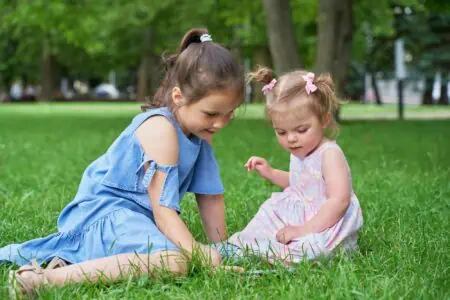We have collected over 200 surnames starting with U. This list covers everything from popular choices to unique finds. Read on to discover meanings, origins, and fun facts about this unique letter.
In This Article
80 Common Last Names That Start With U
These are the most recognized surnames starting with U that you might encounter.
- Ubanks: A name of Middle English origin. It refers to the “banks of yew trees.”
- Uberti: An Italian variation of Ugoberto. It combines “hug” (heart) and “berht” (bright).
- Udall: Roots in Yewdale, Lancashire. It translates to “yew-tree valley.”
- Uddin: Derived from the Arabic “ud-dīn.” It means “of the religion.”
- Udelhoven: A geographical name. It denotes someone from Üdelhoven in North Rhine-Westphalia, Germany.
- Udell: A 5-letter English surname. It signifies a “yew tree valley.”
- Uden: Describes a person from Uden. This is a location in North Brabant, Netherlands.
- Udin: Originally a first name. It belonged to Breton-French residents from Ille-et-Vilaine in Brittany.
- Uebele: A German name derived from “uebel.” It translates to “evil” or “ill-tempered.”
- Ueki: Japanese origin. It means “planted tree” or “cultivate.”
- Ueno: A common Japanese surname. It means “upper field.”
- Ufford: describes various locations across England. It sometimes refers to “Uffa’s enclosure.”
- Ugalde: A Basque surname. It means “waterside” or “river.”
- Ugolini: Means “son of Ugolino.” It is a pet form of the name Ugo.
- Uhl: A Germanic nickname for Ulrich. It uses the root “ule” (owl).
- Uhland: Combines Germanic terms. It mixes “odal” (inherited property) and “nand” (daring).
- Uhle: A topographical name. It refers to an “earthen pot house.”
- Ulch: An American form of German Ulsch. It comes from “łuža” (swamp).
- Uliano: A short form of Giuliano. This is the Italian variation of Julian.
- Ullmer: Refers to those “from Ulm” in Germany. It relates to Odolmar (famous inherited property).
- Ulloa: A Spanish geographical name. It points to locations in Galicia.
- Ulman: German origin. It describes a man from the city of Ulm.
- Ulmer: Linked to the city of Ulm. As a given name, it means “fame of the wolf.”
- Ulrich: From Old High German Uodalrich. It means “heritage ruler.”
- Ulrick: A variant of Ulrich. It signifies a “noble or regal ruler.”
- Umana: An Italian feminine form of Umano. It means “human” or “generous.”
- Umanzor: A variation of Almanzor. It links to a mountain in Sierra de Gredos, Spain.
- Umpleby: Similar to Uppleby. It comes from Middle English for “up in the village.”
- Underdown: Topographical name. It describes someone living at the “foot of the hill.”
- Underhill: Middle English origin. It refers to those living “below a hill.”
- Underkoffler: Spelling of German Unterkofler. It refers to the “lower side of a mountain.”
- Underwood: A common geographical surname. It describes someone living “below a wood.”
- Unger: German origin. It is an ethnic term or nickname for a Hungarian.
- Unnerstall: Describes a specific farm location. It means “below the barn.”
- Unruh: German nickname. It describes a restless person, from “unrouwe” (unrest).
- Unswin: Based on the Old English name Hūnwine. It means “bear cub friend.”
- Unsworth: Geographical name. It refers to Unsworth in Lancashire, England.
- Unthank: Refers to locations in England. It comes from “unthances” (without leave).
- Upchurch: Topographical. It describes “the higher of two churches.”
- Updike: From Dutch Opdijk. It identifies someone living on a dike.
- Upham: Old English origin. It combines “upp” (upper) and “hām” (village).
- Upshaw: English origin. It means “upper thicket” or “upper wooded area.”
- Upstead: Americanized spelling of German Umstadt. It points to a town in Hesse.
- Upton: Popular in Sussex. It means “upper settlement.”
- Urbach: German and Czech name. It is a form of the first name Urban.
- Urbain: French origin. It comes from Latin “urbānus” (city-dweller).
- Urban: A Latin surname. It refers to a “city dweller.”
- Urbaniak: Polish and Lithuanian origin. It relates to “urbana” (city-dweller).
- Urbano: Italian name. It means “son of Urban.”
- Urbanski: One of the many Polish surnames. It links to the Latin name Urban.
- Urbina: Spanish origin. It refers to those “from Urbina” in the Álava province.
- Uriarte: Basque name. It combines “uri” (hamlet) and “arte” (between).
- Urias: Biblical origin. It means “God is light” and is the most common surname in Mexico starting with U.
- Uribe: Basque origin. It means “lower part of the village.”
- Urick: English spelling of German Ulrich. It means “noble heritage.”
- Urlaub: Middle German origin. It means “permission” or “discharge.”
- Urquhart: A Scottish surname. It likely means “by the thicket.”
- Urquidi: Spanish-Castilian form of Urkidi. It describes someone living by a “birch wood.”
- Urrutia: Basque origin. It means “distant” or “far away.”
- Urry: Scottish origin. It first appeared in Ayrshire.
- Urwin: Scottish roots. It means “green water” or “green sea.”
- Usery: Old English origin. It comes from “usura” (moneylender).
- Usher: Occupational name. It describes a “doorkeeper.”
- Usherwood: English origin. It means “wood of the usher.”
- Usilton: Also spelled Uselton. It combines “useful” and “enclosure.”
- Usner: German variation of Usener. It points to someone from Usingen.
- Usrey: French origin. It describes a “person who has a right of use.”
- Usry: Relates to the name Osric. It means “godly power.”
- Ustinov: Russian patronymic. It means “son of Iustin.”
- Utley: English origin. It means “Utta’s woodland clearing.”
- Utney: Variant of Utne. It is named after a Norwegian village.
- Utsumi: Japanese origin. It means “inner sea” or “house.”
- Utter: A Swedish surname. It translates to “otter” and was often a soldier’s name.
- Utting: English patronymic. It relates to “otta” (riches).
- Utz: German nickname. It is a short form of Ulrich.
- Utzinger: Swiss-German. It denotes residents of Utzingen.
- Uy: A Chinese surname. It means “yellow.”
- Uzumaki: Japanese origin. It means “whirlpool” or “eddy.”
- Uzun: Turkish nickname. It describes a tall person.
- Uzzell: English-Norman nickname. It comes from “oisel” (bird).
80 Interesting Last Names That Start With U
There is something unique and special about each of these surnames.
- Ubben: Means “son of Ubbo.” It links to an ancient name meaning “property.”
- Ubele: Occupational surname. It associates with the German word for “evil.”
- Uebelhor: Variation of Übelherr. It translates to “evil lord.”
- Ubosi: Nigerian origin. It connects to the idea of being “born with wealth.”
- Uccello: Italian nickname. It means “bird” or “fowl.”
- Uchimura: Japanese origin. It means “inner village.”
- Uchiyama: One of many Japanese last names. It means “inner mountain.”
- Uchytil: Czech nickname. It describes someone “tenacious.”
- Udalov: Derived from a Russian male name. It means “remote” or “distant.”
- Udoka: Igbo-Nigerian surname. It comes from “udo” (peace).
- Ueda: Japanese origin. It means “upper rice paddy.”
- Uehara: Japanese name. It translates to “upper plain.”
- Uehlein: German origin. It is associated with the male name Ulrich.
- Ueland: Old Norse origin. It combines “horned owl” and “farmstead.”
- Uesugi: Japanese origin. It means “cedar above.”
- Ufer: Middle German. It describes someone living on a riverbank.
- Uffelman: American form of Uffelmann. It denotes someone from Uffeln.
- Ufimkin: Russian patronymic. It relates to the city of Ufa.
- Ufimtsev: Russian origin. Another name referring to the city of Ufa.
- Uggeri: Italian origin. It is associated with the name Edgardo (wealthy spear).
- Ughi: Italian version of Hugo. It means “heart” and “mind.”
- Uhde: German occupational name. It was used for hemp workers.
- Uhler: German patronymic. It uses the root “odal” (property).
- Ujah: Igbo-Nigerian. It refers to a farming tool for yams.
- Ulfsson: Scandinavian origin. It means “son of Ulf” (wolf).
- Ullom: English origin. It is an ancient word for “wolf.”
- Ulsh: Anglo spelling of Ultsch. It is a pet name for Ulrich.
- Ulshafer: Topographical. It refers to those living in Ilshofen.
- Ulven: Norwegian and Danish. It means “the wolf.”
- Ulvestad: Old Norse. It means “wolf farmstead.”
- Ulyanenko: Slavic origin. It comes from Ulyana (youthful).
- Ulyanov: Russian name. It means “descendant of Ulyana.”
- Ulyashev: Russian male name. It is derived from Juliana.
- Umanets: Russian origin. It includes the root “um” (mind).
- Umansky: Ukrainian geographical surname. It denotes someone from Uman.
- Umar: Arabic origin. It means “flourishing” or “life.”
- Umbreit: German nickname. It describes an “uncooperative” person.
- Umfleet: Middle English origin. It means “by the stream.”
- Umholtz: Topographical. It describes someone living by a forest.
- Ummel: Swiss-German. It is a rare name with unknown meaning.
- Umnov: Russian name. It uses the root word “um” (intelligence).
- Umphrey: Old French. It is a variation of Humphrey.
- Umsted: Old English. It means “the place by the edge.”
- Unfried: German nickname. It describes someone quarrelsome.
- Ungaretti: Italian name. It is a diminutive for a Hungarian.
- Ungur: Ethnic name. It means Hungarian in Middle German.
- Unis: Arabic origin. The meaning is debated, but it is distinct.
- Unrau: Middle German. It means “restless.”
- Unser: Middle German. It means “uninjured.”
- Unterreiner: German geographical name. It describes someone living below a slope.
- Unterseher: Topographical. It means “downhill from a mountain lake.”
- Uphold: English occupational name. It refers to a secondhand clothes seller.
- Upperman: German origin. It is a name for a church sexton.
- Uptegrove: Variation of the Dutch surname Updegraff. It means “up the grove.”
- Uran: Turkish form of Orhan. It means “skilled one.”
- Urbon: Latin origin. It comes from the name Urban.
- Urbonas: Lithuanian name. It means “gift.”
- Ureña: Spanish geographical name. It refers to a town in Salamanca.
- Urgo: Italian origin. It means “vortex” or “whirlpool.”
- Urish: German variation. It links to the name Ulrich.
- Urzua: Basque origin. It means “dove” or “water and fire.”
- Useff: Variant spelling. It is a form of Yusuf (Joseph).
- Ushak: Russian nickname. It means “big ear.”
- Ushakov: Patronymic. It means “son of Ushak.”
- Ushakovets: Rare variant. One of the least known Russian surnames based on Ushak.
- Ushakovskaya: Feminine form. It also refers to a village in Russia.
- Ushakovtsev: Russian origin. A version of Ushakov.
- Usman: Arabic origin. It is a form of Uthman.
- Usov: Russian name. It means “mustache.”
- Uspensky: Eastern European. Used mostly in East Bulgaria.
- Utecht: Old Slavic. It means “comfort” or “consolation.”
- Utkin: Russian origin. It means “duck.”
- Utley: Middle English. It means “outlying clearing.”
- Utsey: Anglo variation. It comes from the German Jütze.
- Utzig: German name. A patronymic form of Utz.
- Uvarov: Russian origin. It was traditionally used by noble families.
- Uveges: Hungarian occupational name. It means “glassmaker.”
- Uyehara: Japanese origin. It means “upper plain.”
- Uyeno: Japanese name. It means “planted field.”
- Uzowa: Japanese variant. It describes a “small swamp.”
80 Uncommon Surnames Starting With U
Even among last names that start with U, this group is especially rare.
- Ubaghs: Dutch origin. It comes from Latin for “dark-skinned.”
- Ubbesen: Scandinavian patronymic. It is based on the name Ebbe.
- Ubby: Norse origin. It is a form of the warrior name Ubbe.
- Uber: German origin. It means “over” or “above.”
- Ubl: German nickname. It comes from a root meaning “property.”
- Ucak: Turkish name. It means “airfield” or “airplane.”
- Uchida: Japanese origin. It means “inner rice paddy.”
- Udebuluzor: Nigerian surname. It means “God brings wealth.”
- Udechukwu: Nigerian-Igbo name. It means “God’s fame.”
- Udovičić: Croatian and Serbian. It is derived from Ludovico.
- Uecker: German origin. It combines “property” and “spear.”
- Uglow: English origin. It refers to a “yeoman” or “upper people.”
- Uhlig: Occupational German surname. It comes from “uhl” (owl).
- Uhlmann: German name. It is based on “inherited property.”
- Uhr: Occupational name. It describes a “watchmaker.”
- Uhrich: South German. A variation of Ulrich.
- Uhrig: German origin. It denotes a “clockmaker.”
- Ukalović: Croatian surname. It is centered in the Zadar area.
- Ukeje: Nigerian origin. It describes someone “ahead of the class.”
- Ulan: Filipino origin. It means “rain.”
- Uland: Maritime name. It was intended for a shipowner.
- Ulatowski: Polish geographical name. It means “to fly away.”
- Ulbrich: German origin. It means “bright property.”
- Ulery: American variation. It comes from the German Ulrich.
- Ulibarri: Basque place name. It means “new hamlet.”
- Ullah: Arabic name. It means “of Allah.”
- Ullery: Americanized form. It comes from Uodalrich (heritage king).
- Ullmann: Ashkenazi Jewish surname. It means “man from Ulm.”
- Ulm: German city name. It uses a root meaning “turn” or “wind.”
- Ulogu: Romanian name. It means “powerful” or “brave.”
- Uloko: Nigerian name. It is a rare surname with deep roots.
- Ulrey: Variation of Ulrich. It means “noble ruler.”
- Uluceanu: Romanian name. It is a palindrome of sorts, starting and ending with U.
- Uluitu: Rare Romanian surname. Its etymology is complex.
- Ulusan: Turkish origin. It means “nation” or “people.”
- Ulysse: French form. It comes from Ulysses (Odysseus).
- Um: Korean surname. It is written with the character for “stern” or “strict.”
- Umali: Rare Filipino last name. It is also found in India.
- Umbach: Geographical name. It refers to Umbach in Bavaria.
- Umbarger: German origin. It describes someone who lived “around the mountain.”
- Umbenhower: Rare German name. It has noble lineage.
- Umberger: Old German. It means “man from the woods.”
- Umble: English variant. It comes from Humble (meek).
- Umelo: Afrikaans origin. It means “rock.”
- Umljenović: Croatian patronymic. It is a longer, rare surname.
- Umstead: Old English. It means “place by the edge.”
- Ung: Chinese/Korean. It is a variation of Xiong (bear) or names meaning “hero.”
- Ungar: Ethnic name. It describes a Hungarian.
- Unrein: German nickname. It means “unclean.”
- Unwin: Old English. It means “bear-cub friend.”
- Unzueta: Basque name. It means “place of ivy.”
- Upadhyay: Indian (Sanskrit). It means “teacher.”
- Updegraff: Dutch origin. It means “stream channel.”
- Uphaus: German geographical name. It refers to those living in Uphusen.
- Uphoff: German origin. It describes someone living on a farm.
- Uppal: Indian origin. It means “one who leaps upon their enemies.”
- Upson: English origin. It means “Ubbi’s estate.”
- Uranga: Basque name. It means “water.”
- Urbanek: Old Polish. It describes the “master of the house.”
- Ure: Scottish variation. It is a form of Ivor.
- Uremović: Serbo-Croatian. It comes from the word for “master.”
- Ureno: Hispanic form. It derives from the Spanish Ureña.
- Uresti: Basque origin. It means “sweet water” or “honey water.”
- Urfer: German topographical name. It denotes someone from Urff.
- Urgiles: Rare Spanish surname. It is found in Ecuador.
- Urich: German origin. It means “noble ruler.”
- Uriegas: Rare Basque surname. It is a variant of Urietas.
- Urioste: Basque name. It means “behind the village.”
- Uriostegui: Basque origin. It is a compound place name.
- Urness: Norwegian name. It means “promontory headland.”
- Urquidez: Basque name. It describes someone living by a birchwood.
- Urquiza: Basque variation. It comes from “urki” (birch tree).
- Urrea: Spanish origin. It refers to locations in Zaragoza.
- Urso: Italian name. It comes from “ursus” (bear).
- Uselton: English origin. It combines “useful” and “enclosure.”
- Ussery: Old English. It means “god-spear.”
- Utt: Old English. It describes someone living at the “outer” edge of a village.
- Utterback: Flemish origin. It denotes someone from Itterbeek, Belgium.
- Uyeda: Japanese origin. It means “upper rice paddy.”
- Uzelac: Serbo-Croatian. It means “to take away.”
Thank You For Your Feedback!
Thank You For Your Feedback!
What Did You Like?
What Went Wrong?






